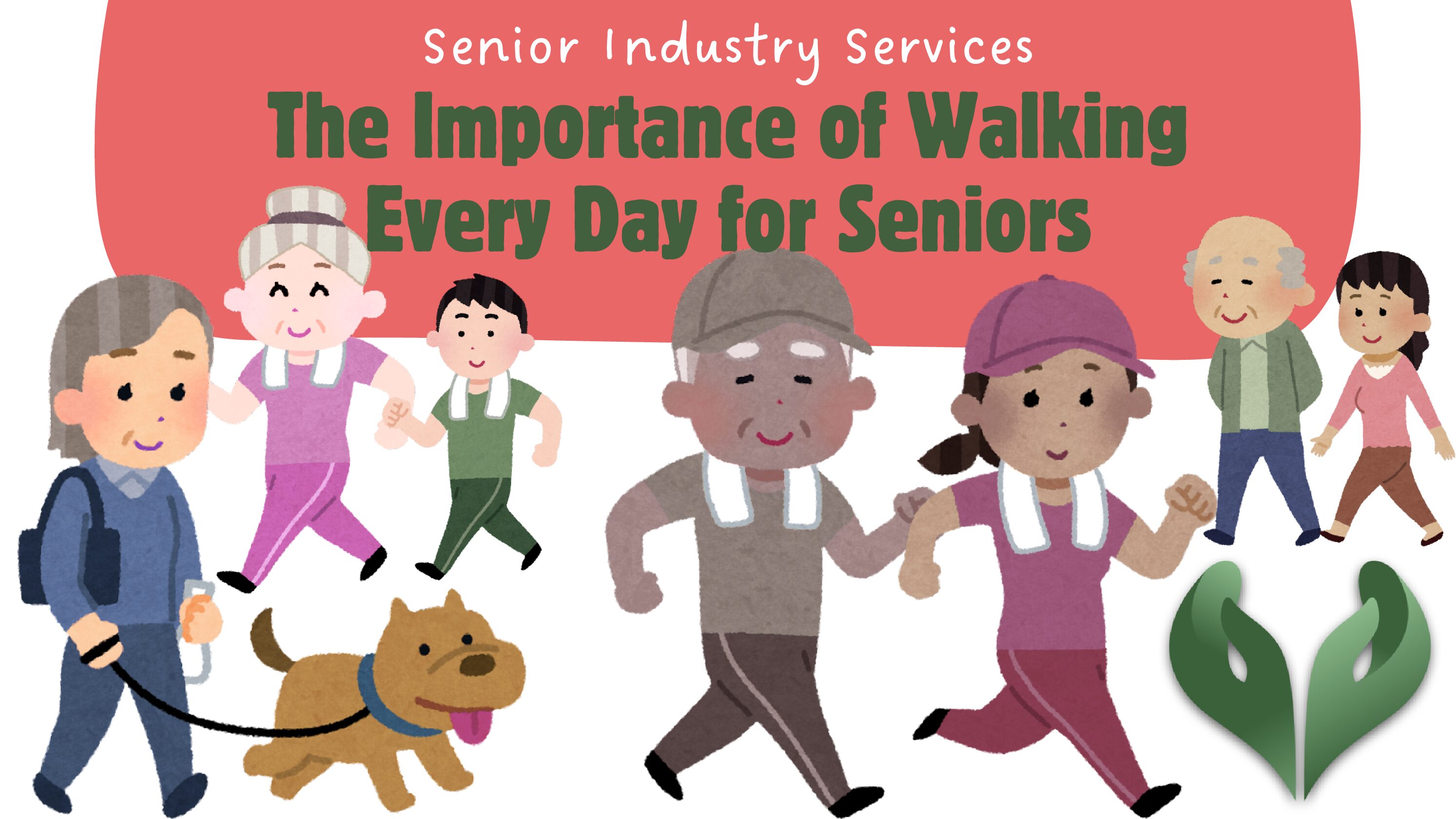As we age, staying active becomes more critical to help maintain good health. Staying active in general is paramount for whole body health at every age, but as we age, it can help our bodies to handle better the often negative effects of aging such as joint pain and other health issues.
Maintaining a physically active lifestyle is one of the best methods of retaining, and even enhancing, our level of quality as we get older. There are different types of exercise you can participate in to stay active, and often the best thing to do is something you enjoy. Whether that be swimming, riding your bike, or simply walking. Walking is a simple and easily accessible option for most people as it doesn’t require equipment and can be done nearly anywhere. It’s one of the easiest and most useful exercises for elderly people.
Regular walking offers numerous health benefits to physical and mental well-being, including improved cardiovascular health, stronger bones and muscles, better balance, and enhanced mental well-being. These contribute to a higher quality of life and greater independence. Here are some reasons why this simple exercise is so important for seniors.
1. Boosts Cardiovascular Health
Walking is a low-impact exercise that keeps the heart healthy. Regular walks can lower blood pressure, improve circulation, and help you avoid heart disease. For elderly people, keeping the heart healthy is essential since heart disease is one of the leading causes of death among elderly individuals. A 20-30 minute walk daily can go a long way in cardiovascular health.
2. Maintains Balance and Coordination
As we get older, balance and coordination can worsen, which can result in injuries or falls. Balance is enhanced with walking by providing strength to the leg and core muscles responsible for our balance.
3. Supports Bone and Joint Health
Walking is a weight-bearing activity, meaning it makes bones and joints stronger. Daily walking can prevent osteoporosis, which makes bones weak and brittle, and also helps to treat arthritis by helping the joints move freely. In older individuals, healthy bones are crucial for maintaining independence and avoiding fractures or joint pain complications.
4. Mental Health
Aside from its physical advantages, walking significantly impacts the mind. Exercise, including walking, releases endorphins, a chemical in the brain responsible for feelings of happiness and stress reduction. For seniors who might feel isolated or suffer from depression symptoms, a daily walk can be a good solution to improve their mood and minimize feelings of loneliness or anxiety.
5. Quality of Sleep
Physical exercises such as walking regularly may control and enhance the pattern and quality of sleep. Taking a walk can help you fall asleep quicker and stay asleep for longer as it helps the body relax on its own during the night by reducing tension or anxiety.
6. Social Interaction
Walking can be a social activity. Walking does not have to be alone. You can enjoy an afternoon walk with a friend, a member of your family, or even with a social group. Walking socially helps both with physical health and mental health and helps create a deeper sense of community. Group walking is also a great way of making new friends.
7. Strengthens Cognitive Function
Exercise, including walking, has also been shown to improve mental functioning in elderly people. Daily walks enhance blood flow to the brain, which improves memory, concentration, and overall mental sharpness. Everyday walking can also reduce the risk of cognitive impairment, such as dementia and Alzheimer’s disease.
8. Weight Management
It can be more challenging to maintain and achieve a healthy weight as we age, because of this, walking is a great way to reach a healthy weight. It burns calories, builds muscle strength, and raises metabolism. Weight control in seniors reduces the risk of chronic diseases like type 2 diabetes, high cholesterol, and certain cancers.
Tips to Get Started:
- Start Slowly: If you are a beginner, start with short walks and increase the length and intensity over time.
- Dress Comfortably: Wear supportive shoes that cushion and stabilize for walking.
- Stay Hydrated: Bring water, especially if you’re walking for an extended period or in the heat.
- Walk with a Buddy: Try to walk with a friend or relative for extra support and encouragement.
Walking is a free, easy, and fun method for seniors to remain healthy, increase mental acuity, and live an overall higher-quality life. It doesn’t matter if it’s a leisurely walk in the park or a speedy walk around the neighborhood; incorporating a daily walk into your routine can have lasting benefits on your health. So lace up your shoes, go out, and reap the rewards of daily walking.
Instead of just thinking about improving your well-being and health, why not start today? Take a walk around your neighborhood or enjoy a walk in a climate-controlled space like a mall. It’s never too late to start reaping the rewards of a healthy and active lifestyle!
Written for Senior Industry Services by Lauren Hope Bartling


